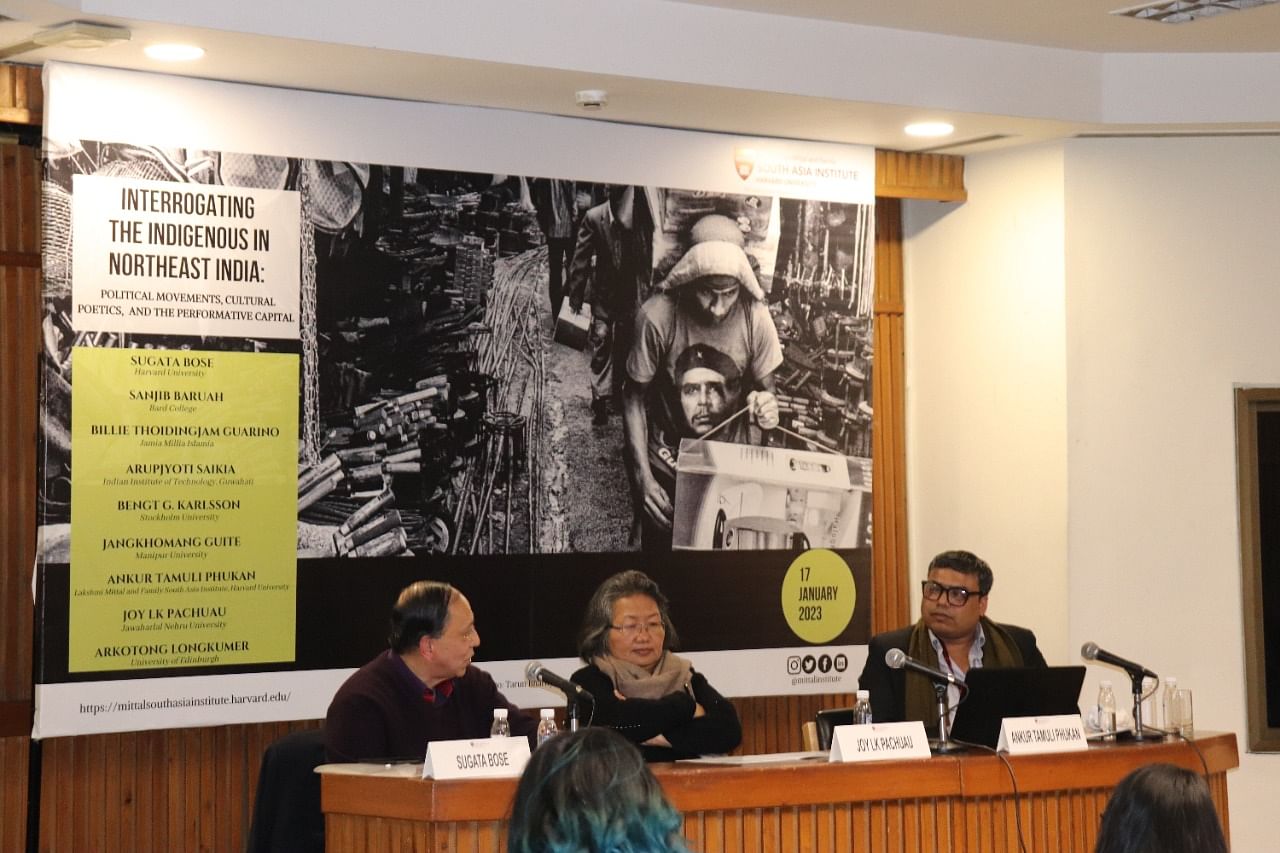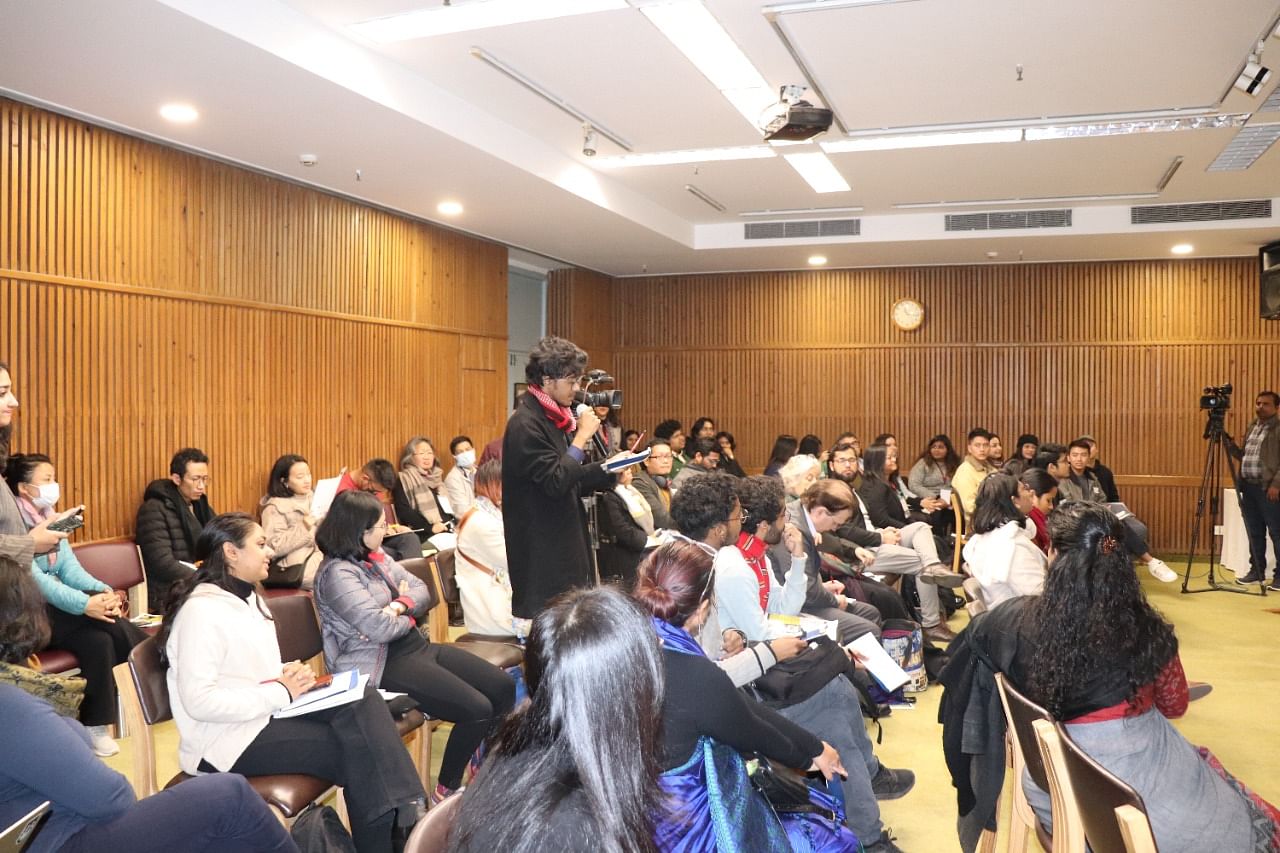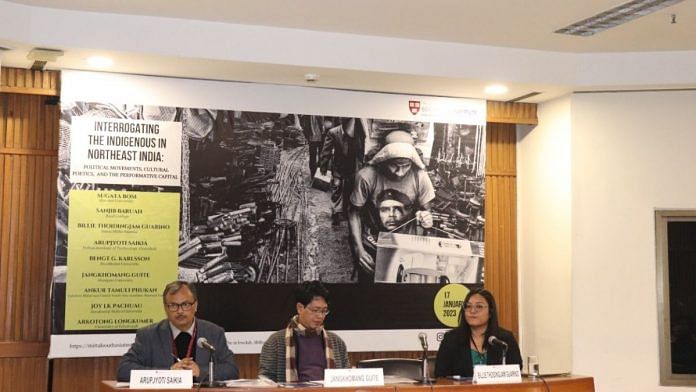At a time when historical warriors like Lachit Barphukan are being celebrated in India as part of a new political and intellectual gaze on the Northeast, scholars from around the world came together this week to interrogate terms like ‘indigenous’ and ‘Adivasi’, often attached casually to the people of the region.
The lecture hall at Delhi’s India International Centre (IIC) was filled with academicians, scholars and students on 17 January for a conference titled Interrogating the Indigenous in Northeast India, organised by the Lakshmi Mittal and Family South Asia Institute at Harvard Institute. Apart from the 70 participants who filled up the hall, nearly 200 joined through a Zoom link.
The first session looked at regional discourses, emerging modalities of indigeneity, and the creative anxieties in the Northeast. When the panel discussion shifted to the usage of the term ‘Adivasis’, an audience member, Bipasha Rosy Lakra assistant professor of political science at Jesus and Mary College), pointed out that various tribes of Northeast abhor the term for its political implications.
The panel comprised Bengt G. Karlsson, a social anthropology professor at Stockholm University; Jangkhomang Guite, associate professor of history at Manipur University; and Billie Thoidingjam Guarino, a faculty member in Jamia Millia Islamia’s English department.
“History of Northeast cannot be put under existing schools of historical thought, and that gap needs to be covered,” said Prakash Sharma. “We have to look at the history of the Northeast both from a sense of attachment as well as detachment,” said Mondeep Borah. Both the audience members from Assam are second-year students of Khalsa College in Delhi.
Also read: Alcohol, men, night concerts—yet, Arunachal’s Ziro music festival is safest for Indian women
A robust, well-rounded discussion
In the second session, the scholars expanded on the term ‘indigenous’ and how it can be understood in contemporary times when viewed through the lens of history.

From concepts like global indigeneity to the performative aspect of indigeneity, new and important questions were raised. Senior lecturer at the University of Edinburgh Arkotong Longkumar, who joined the panel virtually, focussed on ways of looking at indigeneity. While Joy LK Pachuau of Centre for Historical Studies at Jawaharlal Nehru University brought in the self-fashioning and territorialising of the Mizo identity, which is actively rooted in the land. Their custom of burying the dead in the neighbourhood is also linked with their identity. Another member of the panel, an India fellow at Lakshmi Mittal and Family South Asia Institute, Ankur Tamuli Phukan did a reading of the musical instruments such as dhol and doba, an integral part of Assamese identity and their role as means of assembling people, often for acts of violent resistance.
Inevitably, Longkumar brought up the Citizenship Amendment Act (CAA) and said that the resistance against it in Northeast India is not simply because it is ‘anti-Muslim’. It is also ‘anti-indigenous’. Many also questioned what the next phase of the movement for self-identification might look like.
Speaking on the scope of indigenous, Pachuau said that it goes beyond humans. She gave examples of glutinous rice, found mainly in the Northeast. The issue of the Hindu right appropriating or hijacking the indigenous identity was also brought to the fore.
“I have been equally impressed by the searching questions and insightful comments that have come from the audience. It is not often that we have scholarly exchanges of this quality about the Northeast,” said politician-historian Sugata Bose who was chairing the panel. Bose is the Gardiner professor of Oceanic history and affairs at Harvard University.
Also read: With eye on China — Army facilitates civilian adventure activities near to LAC
Looking ahead
Arupjyoti Saikia, professor of History at Indian Institute of Technology, Guwahati, and Phukan both welcomed the scholarly projects and endeavours around the question of indigeneity being undertaken in the Northeast. “There is a lot of exciting academic and research work happening by scholars from the region, who are now spread all over the world. I certainly see the future as bright,” said Saikia.

Saikia said that Arkotong Longkumer’s The Greater India Experiment: Hindutva and the Northeast and Joy Pachau’s Entangled Lives: Human-Animal-Plant Histories of the Eastern Himalayan Triangle are some of the books that have pushed the envelope in terms of looking at the history from the Northeast. Saika’s book The Unquiet River: A Biography of the Brahmaputra is also a fascinating telling of Assam’s history through the Brahmaputra river.
As people filed out after the event concluded, Phukan pointed out the impressive turnout.
“There is a keen interest in the new generation in knowing about the history of Assam. They are interested in knowing more about the state, and that is a good sign,” he said.



